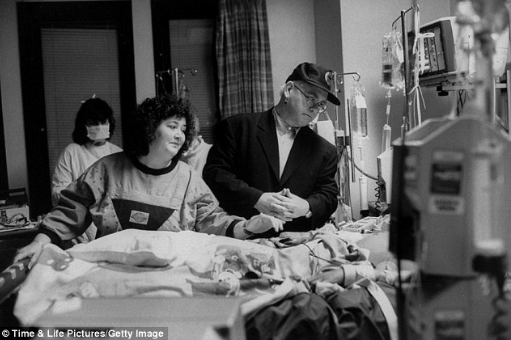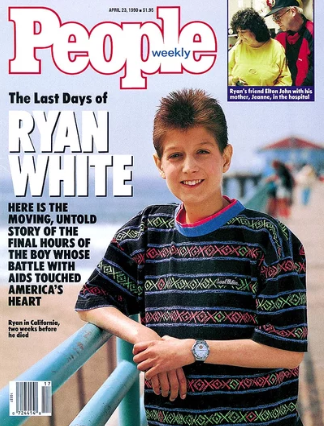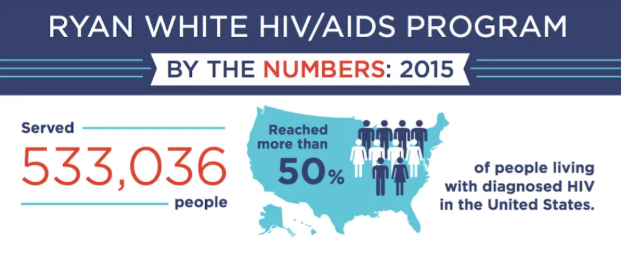The Lasting Legacy of Ryan White

"Being Around the White family made me want to be a better person. It took Ryan's death to do so. When his eyes closed, mine opened -- and they've been open ever since." - Elton John
Taro Yamasaki, Getty Images, 1990.
The Significance of Ryan's Story
Ryan White impacted so many people during his short life. He helped bring awareness to the severity of AIDS, and taught others that people with AIDS can accomplish great things. In addition to the general public, Ryan created lasting friendships with multiple famous people. Elton John became a supportive friend to White and an active follower of his story. John even wrote a book dedicated to Ryan White titled, "Love is the Cure: On Life, Loss, and the End of AIDS". John's book describes the brutality that White faced on a daily basis including discrimination, segregation, and verbal attacks. Through the support of both living friends like Elton John, and late friends like Michael Jackson, White's story continues to live on through the work of his supporters.
The Ryan White HIV/AIDS Program
Ryan White's HIV/AIDS program, was founded in 1990. Since its creation, it has been the largest federally funded program that specifically helps those with HIV. His program helps financially support individuals receiving outpatient care, and helps those without health insurance. Most people who receive care from the program are low income, male, and people of color. White's program has grown immensely through the years and now serves roughly half a million people annually. This program is altered each year to accommodate new and emerging needs of the patients. The program seeks to enhance the lives of people with AIDS so they can reach their full potential. The goal of The Ryan White HIV/AIDS program is to receive more funding from the American Government so that its services can reach all Americans suffering from HIV/AIDS.

Bill Shaw, 1990.
Listen to hear Ryan's mother, Jeanne White-Ginder speak about the legacy of her son.

Central Carolina Health Network, 2015.
"Today, more than ever, we need to combat HIV not just as a biomedical issue, but as a social challenge, too. No one suffering from a disease should ever be made to feel that it is a moral failing."
-Dr. George Sigounas